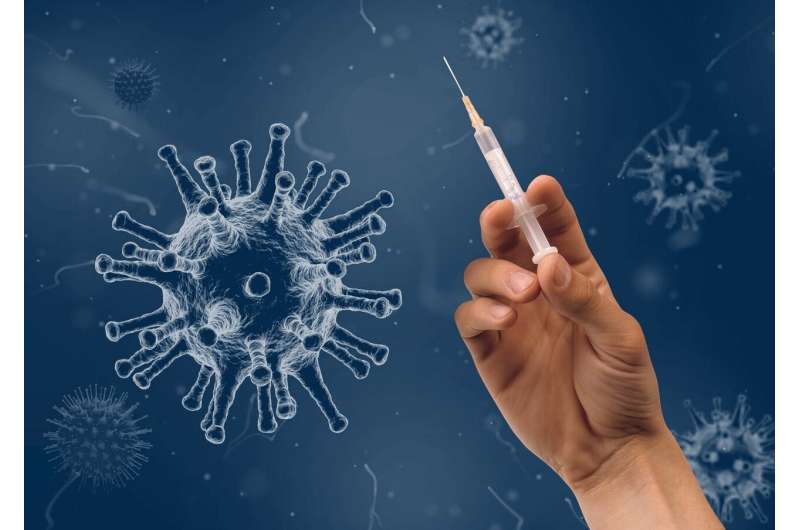New evidence suggests studies need to take vaccination status into account

How many people have been infected with COVID-19 to date? New evidence suggests that answering this question may be more challenging than previously thought.
Currently, investigators conduct serologic surveys, testing blood samples for antibodies against the nucleocapsid protein (anti-N Abs) to estimate the percentage of people who have had a prior COVID infection. But a new study by investigators at Harvard Medical School and Brigham and Women’s Hospital suggests that this form of testing may be undercounting prior infection.
Among participants in a clinical trial who were tested for COVID-19 using a polymerase chain reaction (PCR) test, only about 40 percent of vaccinated participants who had a PCR-confirmed SARS-CoV-2 infection had a positive anti-N Ab result afterward.
Results were published in Annals of Internal Medicine.
“This was a surprise. Previously, the thinking was that infection with SARS-CoV-2 would leave behind an immunologic footprint that we could measure through serologic studies and accurately estimate prior infection, both at the individual and population levels, similar to how we use hepatitis B virus core antibody to assess prior hepatitis B virus infection,” said corresponding author Lindsey Baden, HMS professor of medicine at Brigham and Women’s. “But our study shows us that we need to take vaccination status into account.”
To evaluate how well serologic testing for anti-N Ab captured rates of prior infection, researchers evaluated data from a phase 3 randomized, double-blind, placebo-controlled vaccine efficacy trial of the mRNA-1273 COVID-19 vaccine (Moderna).
During the trial, half of the participants received the mRNA-1273 vaccine and half received a placebo. All participants were tested for SARS-CoV-2 with a PCR test if they showed symptoms of possible COVID illness. All participants had systematic serial blood sampling during the study.
Baden and colleagues evaluated blood samples for about 700 participants with PCR-confirmed illness during the blinded phase of the trial, through March 2021. They found at the end of the blinded phase of the trial that among placebo recipients, 605 of 648 (93 percent) were positive for anti-N Ab.
But among those who were vaccinated, only 21 of 50 (40 percent) had anti-N Ab.
The authors noted that their sample size was small, and data were collected before the delta and omicron waves of the pandemic, but said their findings may have important implications for individuals and public health officials who are interested in prior infections.
“Diagnosing previous infection isn’t simple at the individual or population level,” said Baden. “But it’s important to keep in mind that failure to develop this footprint of anti-N Ab does not mean failure to develop a robust immune response as evidenced by the substantial clinical protection afforded by vaccination. In fact, it may be just the opposite,” he said.
Source: Read Full Article
